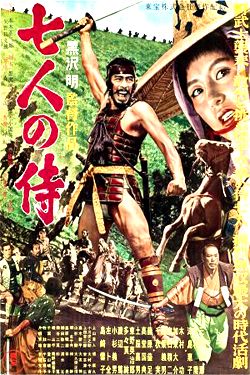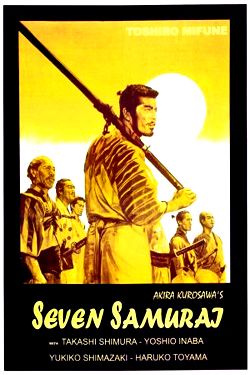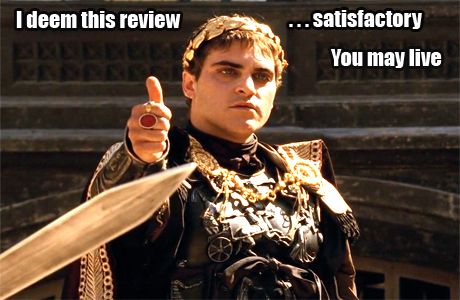Milestone Review - #200
Well here it is, #200. And I've decided to go with this particular review to mark it. When I hit the landmark of #100 I did a series of 5 reviews dedicated to 5 members on here who had given me and my reviews a lot of support. While I didn't get around to doing something similar this time this review will work in a somewhat similar way.
First of all I'd like to dedicate the review to The Gunslinger45. He wasn't around for the 100th review celebration but since he joined he's been a great supporter of my reviews, both in terms of rep and feedback. And he constantly tells me how great they are which will always get you on my good side! I'm like a easy lay, tell me I'm pretty and I'm yours! 

However it also works for several of my other big supporters. It's a film on the favourite films list of honeykid, mark f, cinemaafficionado and TylerDurden99. And while it didn't make his list at the time I know that Daniel M loves it and it would now easily make any list he made. And I'm sure there are also a good few other people who like/love it as well.
In addition to the already aforementioned people thanks also to Rodent, nebbit, Sexy Celebrity, seanc, Miss Vicky, Masterman, donniedarko, cricket, Cobpyth, Gabrielle947, Camo, Loner, Deadite, Skepsis93, Godoggo, gandalf26, Brodinski, Used Future, edarsenal and Rhaeger Targaryen who at least at some point have contributed to the thread in terms of rep, feedback, kind words, recommendations etc. I know I'll have missed at least one or two people out that deserve a mention and to those people I apologise.

|

|
Year of release
1954
1954
Directed by
Akira Kurosawa
Akira Kurosawa
Written by
Akira Kurosawa
Shinobu Hashimoto
Hideo Oguni
Akira Kurosawa
Shinobu Hashimoto
Hideo Oguni
Starring
Takashi Shimura
Toshiro Mifune
Yoshio Inaba
Seiji Miyaguchi
Minoru Chiaki
Isao Kimura
Takashi Shimura
Toshiro Mifune
Yoshio Inaba
Seiji Miyaguchi
Minoru Chiaki
Isao Kimura
Seven Samurai
Plot - In 16th century Japan, a small farming village once again faces the prospect of having their crops seized by a roving group of bandits. Having decided that this can no longer go on, the village's patriarchal elder sends a group of villagers to the nearest city in search of samurai who they'll hire to defend the village. With no money at their disposal and only the offer of lodging and three meals a day the pickings are slim for the villagers, but their fortunes take a turn for the better when they meet a veteran, kind-hearted samurai by the name of Kambei. With his help they are eventually able to recruit a further six individuals to take back to the village. Returning to the village, the samurai set about preparing both the village and its residents for the oncoming attack. Up against some 40 well-armed bandits the odds are not in their favour however, and they will suffer many losses before the battle is done.
Seven Samurai is a truly incredible film! It's a true masterpiece. A powerful, riveting film full of humour. Full of wonderfully created characters the film also features one of the most intense and amazing battle scenes I've ever seen. Even though the film is over three hours long and subtitled it just flies by; it's so engrossing. If you've ever felt like all foreign films were boring, give this one a shot and prepare to have your conceptions challenged and very likely changed.
For a film whose running time exceeds three hours, it's a bit of a surprise just how exceedingly simple a plot forms the basis of Seven Samurai. 'Farmers recruit samurai to fight some bandits. Samurai fight the bandits.' And that's pretty much it. While it obviously wouldn't have the same amount of depth to it, you could easily imagine the story being told in half the time. By taking so much time however, it allows Kurosawa to really flesh out the situation and more importantly the characters. With so many characters vying for screentime it would be easy for many of them to get lost in the shuffle, but Kurosawa does a commendable job of distinguishing them as individuals; setting them apart from each other with distinct personalities and making us care about them; so much so that whenever one of them dies we feel a genuine pang of sadness about it. So we are given the strong leader in the form of Kambei, the brave and humble samurai who is the villagers first recruit. We are introduced to him in a scene where he rescues a young child help captive. To do so he has his topknot cut so he can pass as a priest. I may not have a great knowledge of Japanese history and the role of the samurai, but I do know that the topknot is seen as a symbol of the samurai and that it is treated with great honour. To have it cut off would be seen as shameful, so to willingly do it to himself shows just how noble a warrior he is.
The second recruit comes in the form of Katsushirō, an idealistic young man who has no experience of being a samurai but has a great reverence for the discipline. When he witnesses Kambei's actions he offers himself up as a disciple if Kambei will teach him. For him the film really acts as a coming-of-age tale; giving him idols to worship in the form of Kambei and Kyuzo, his first taste of battle and a love interest in the form of Shino, one of the villager's daughters. Other members of the group include Kyūzō, the highly skilled and stoic master swordsman who takes his duty very seriously; Gorobei, a kind-hearted and intelligent man who seems to have a constant smile on his face and forms a friendship with Kambei; Heihachi, a warrior possessing of less skill perhaps but a charming and good natured addition who helps to keep morale up; and Schichiroji, a former lieutenant of Kambei who is more than happy to take up arms with him once again and who seems to relish a good fight. And then of course there is the final addition to the group, Toshiro Mifune's Kikuchiyo. With a foot in each camp he acts as a sort of bridge between the farmers and the samurai. The son of a farmer, he has rejected that life and attempted to jump up his station and become a samurai. Mifune is given a tremendous speech to spout to the other samurai and does it in stirring style. When the samurai discover a hidden cache of samurai weaponry and armour, stolen off of samurai that were killed after wandering into the village, the group reacts with anger and indignance. It seems that this joint venture is in peril of collapse, when Kikuchiyo berates his comrades for being so surprised at the actions of the farmers. After everything that the samurai have done to disrupt and destroy the existence of the peasants, how do they think they will react? The farmers may be cowardly, treacherous and conniving, but it was the samurai who made them this way.
Film Trivia Snippets - It may regularly be hailed as one of the greatest films ever produced but we almost never got the chance to see it. The studio behind the film, Toho, pulled the plug several times when it ran over budget. To help salvage the film, Kurosawa had to go and personally argue with the studio's board of directors who were convinced they were backing a flop. /// Akira Kurosawa's ancestors actually were samurai warriors, roughly up to a hundred years before he made Seven Samurai. /// The skilled samurai Kyuzo was played by Seiji Miyaguchi, a man who had never actually touched a sword in his whole life. To help sell the illusion that he was indeed a master, careful editing and cinematography were employed.
 Mifune also allows for brief glimpses of depth and despair within Kikuchiyo. If you ever wanted an example of an actor just demanding your attention whenever he is on screen, this would be a prime example. Also very impressive is Takashi Shumura as Kambei, the de facto leader of the group. He brings such a sense of dignity and honour to the character, completely convincing us of his standing as a wise strategist. All those portraying the samurai give stirring performances, while some of the villagers prove excellent additions merely on the strength of their facial features alone which convey such despair and desperation. I love the little moment where one of the villagers attempts to pick up rice, one grain at a time because of how desperate their plight is.
Mifune also allows for brief glimpses of depth and despair within Kikuchiyo. If you ever wanted an example of an actor just demanding your attention whenever he is on screen, this would be a prime example. Also very impressive is Takashi Shumura as Kambei, the de facto leader of the group. He brings such a sense of dignity and honour to the character, completely convincing us of his standing as a wise strategist. All those portraying the samurai give stirring performances, while some of the villagers prove excellent additions merely on the strength of their facial features alone which convey such despair and desperation. I love the little moment where one of the villagers attempts to pick up rice, one grain at a time because of how desperate their plight is. Considering the fact that Seven Samurai is nearly 60 years old it may come as a surprise to viewers just how lively and energetic the film is; it certainly was a surprise to me the first time I watched it. Kurosawa imbues the film with a darting camera, swift editing, screen wipe transitions and tracking shots; all in the aim to give the film a really dynamic feel. And he succeeds with flying colours, presenting the film with a boundless, kinetic energy. It really does feel like Kurosawa was way ahead of his time with this film. He also infuses quite a vein of humour throughout the film to defuse the tension, largely resulting from Mifune's manic clowning. While the camaraderie that builds between the samurai and the romance that young Katsushirō finds ensures that the film also has a lot of heart.
Film Trivia - The amount of work put into the film prior to filming was quite exceptional. The script's first draft, written by Shinobu Hashimoto, was written “freely” as instructed by Kurosawa, and weighed in at 500 pages long. For the final draft, three writers; Kurosawa, Hashimoto and Hideo Oguni, spent 45 days working on it, taking no phone calls or visitors with very few exceptions. The constant workload took a toll on their bodies and with sickness rampant at the time in post-war Japan, Kurosawa wound up in hospital with roundworms. And in a bid to help out the extras who were portraying the villagers, Kurosawa created a registry of all 101 of the village's residents complete with family trees to help them build their characters and their relationships with each other.
The storytelling aspect of the action is fantastic, moving the conflict around and staging it in various different styles. And the action itself is just so visceral and heart-pounding. The tension builds as we wait for each attack and then it is unleashed in frenzied bursts as we see the bandits scrambling for refuge once they have been trapped, while the villagers descend on them like a pack of wild rats. Before the final assault, the rain begins to crash down, turning the ground into a mire and making the events even more graphic and expressive, as well as making it an even greater technical achievement. Some of the compositions that Kurosawa puts together are fantastic, at times pulling us in extremely close to the action while on other occasions pulling back to show action happening both in the foreground and in the background, giving the action amazing depth and scope. Also succeeding on that front is the film's powerful score, which at times is so guttural it feels like a funeral march.
Underneath its surface layer of action Seven Samurai also has allusions to several themes and issues, and I'm sure there are many that I don't even pick up on given my limited knowledge of Japanese history and the samurai's place in it. (Basically it's whatever I've picked up from other movies and from the Teenage Mutant Ninja Turtles!
 ) Largely it is about the pecking orders within the Japanese society of the time, and the rules that govern the interaction between members of different standings. This can most greatly be seen in the film's conclusion. After the bandits attack has been repulsed, the closing scenes witness the villagers in a jovial mood with music playing as they go about planting a new crop. With the village now safe the place has been re-energised. But the remaining samurai stand apart, in a much more subdued atmosphere. They are once again seen as outsiders. With the bandits defeated they are now seen as the possible threat. Despite their efforts they have not gained the trust of the farmers. Despite joining together on the battlefield they are once again separate entities. The farmers remain farmers. The samurai remain samurai. And that void remains. Those are there roles in society and they are just fulfilling them. The samurai lost four of their men that day, and it all seems rather meaningless in their regard. As Kambei states with the film's final piece of dialogue, “Again we are defeated. The farmers have won. Not us.”
) Largely it is about the pecking orders within the Japanese society of the time, and the rules that govern the interaction between members of different standings. This can most greatly be seen in the film's conclusion. After the bandits attack has been repulsed, the closing scenes witness the villagers in a jovial mood with music playing as they go about planting a new crop. With the village now safe the place has been re-energised. But the remaining samurai stand apart, in a much more subdued atmosphere. They are once again seen as outsiders. With the bandits defeated they are now seen as the possible threat. Despite their efforts they have not gained the trust of the farmers. Despite joining together on the battlefield they are once again separate entities. The farmers remain farmers. The samurai remain samurai. And that void remains. Those are there roles in society and they are just fulfilling them. The samurai lost four of their men that day, and it all seems rather meaningless in their regard. As Kambei states with the film's final piece of dialogue, “Again we are defeated. The farmers have won. Not us.” Conclusion - Not all films live up to their long-held billing of 'masterpiece' but Seven Samurai is certainly one of them. As well as being a stunning technical achievement, it is also a breathtaking and compelling film. It is a film that encompasses a sense of humour and heart into its story, that features rich characterisation and displays some of the most thrilling sequences of action ever seen on the the big scren.
__________________
JayDee's Movie Musings (Reviews - Frailty / Total Recall / Lone Ranger / Nightcrawler / Whiplash / Imitation Game / Birdman / Avengers: Age of Ultron / Mad Max: Fury Road)





 Why do I get the feeling that won't be as nice as it sounds?
Why do I get the feeling that won't be as nice as it sounds?  I'm picturing a Whoopi Goldberg season dedicated to honeykid for example
I'm picturing a Whoopi Goldberg season dedicated to honeykid for example